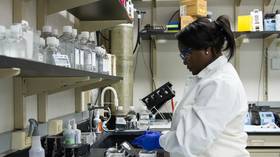Machine learning could provide real-time monitoring of how cancer tumors evolve

Researchers at Memorial Sloan Kettering Cancer Center (MSK) have discovered an approach to monitor cancer evolution in real-time with the use of machine learning, providing a “clearer picture” of the spread of the disease.
The study, released on Wednesday, led by a computational biologist and cancer researcher found that a machine learning approach could be used to examine genetic changes over time to accurately predict the evolution of cancer tumors.
The process works by using a machine learning tool, called fitClone, which applies the mathematics of population genetics to cancer cells within the tumor. The system creates a model of individual cells and how they might behave, providing doctors with data that can help them to plan the patient's treatment.
Using this real-time approach could allow doctors to monitor and predict if a cancer tumor “is likely to stop responding to particular treatment and identify the cells that are likely to be responsible for a relapse.” This would allow medical professionals to respond quicker to cancer, treating it before it can evolve and spread.
Explaining the importance of the newly discovered approach, Dr. Sohrab Shah, one of the lead researchers, highlighted how existing processes are “inherently error prone” but, “by taking many snapshots over time, we can obtain a much clearer picture.”
Also on rt.com US Supreme Court rejects J&J’s appeal against $2.1 billion damages award over claims asbestos-laced talc caused cancer“This study is an important conceptual advance. It demonstrates that the fitness trajectories of cancer cells are predictable and reproducible,” Dr. Shah said.
Prior to this research, there have been “a number of practical reasons” that have made it difficult for scientists to use genetic models to monitor the evolution of cancer but MSK has shown “it’s possible to overcome some of those barriers.”
Think your friends would be interested? Share this story!














